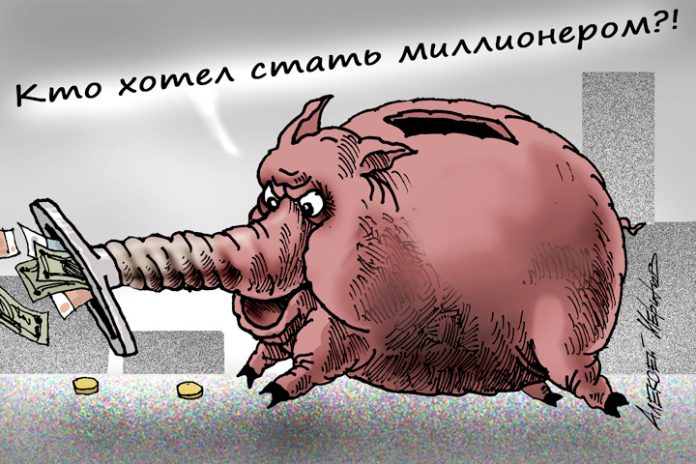
According to Prime Minister Mikhail mishustina, this measure is not associated with the current situation in the economy. Its purpose is to ensure the stability of the financial-economic system of the state in the long term. That income from deposits and bonds will be subject to personal income tax, said President Vladimir Putin during his address to the nation on 25 March because of the situation with the spread of the coronavirus. Recall that the bulk of the deposits is currently being offered at rates below the key. Accordingly, in order to fall under the law, you need to have deposits to the amount to be higher. As for foreign currency deposits, the foreign exchange difference is not taken into account, and the revenue is calculated daily in ruble equivalent at the exchange rate.
“the Final amendments to the bill considerably softened the original idea of the President – says financial analyst FxPro Alexander Kuptsikevich. – Initially the idea was that the tax will be levied on all income derived from the amount over 1 million roubles. That is, getting from the Deposit of 1 million per year 50 million (proceeding from the rate on deposits 5%), would be paid 6.5 thousand.”
In fact, the expert said, that the amendments created a tax on “high-yield” deposits. In this case added an additional variable – the key rate of the Central Bank at 6%, which is higher than the rate for the lion’s share of deposits. So perhaps this will lead to a mass outflow of citizens from the major banks. In General, according to kuptsikevich companies, the latest modifications to the bill aimed at stabilizing the banking system.
In the comments of other interlocutors “MK” there is some skepticism. According to the Deputy head of IAC “Alpari” Natalia Milchakova, the purpose of introducing such a tax is still unclear: it will affect a small part of the population (1% of total deposits), and hence a substantial increase to the budget income will not provide.
“For ordinary people, if this term is to understand the poor, whose incomes are not above the subsistence level, the tax does not hit. First of all, it hurt the middle class and small businesses,” said Milchakova. However, it is unlikely it will be a painful blow, he said. First, because the tax will not be charged with interest income and on the amount exceeding the interest rate of the Bank on key rate of the Central Bank of the Russian Federation, is 6%. Second, because the imposition of such a tax can motivate depositors to put money into individual investment accounts or to acquire the shares of other high-quality companies that pay good dividends.
this position does not agree investment Manager at “OTKRITIE Broker” Timur Nigmatullin. “This is bad news for individuals, investors, private companies and for the economy as a whole, – said the expert. – Now banks will have to increase lending rates, even at low inflation and low Central Bank rate. Accordingly, the profitability of investments will decrease. I do not exclude the growth of outflow of deposits, although this is hardly will take on a dramatic, critical for banking revolution.”
To the hidden meaning of the state Duma of the bill takes a long time to get recognized expert of the Russian Institute for strategic studies (RISS), Mikhail Belyaev. Too much of it is nuances, not obvious even to experts. In a specific banking practice can be any situation not covered by any laws or instructions of the Central Bank. And now, the government has created banks, and not only them, more headache. In addition, the mere word “tax” is able to confuse citizens. And too bad that it happened now, when because of the coronavirus situation in the country and so strained to the limit.
meanwhile. on March 31, the state Duma adopted other amendments to the Tax code to support businesses and citizens in a pandemic. So, in 2024 allowed the deferral of payment of taxes, fees and insurance premiums. In addition, provides for a reduction of up to 15% of insurance contributions to social funds with salaries in excess of the MROT employees of small and medium business.
Read also: Russian oil fell to the level of 90-ies
















